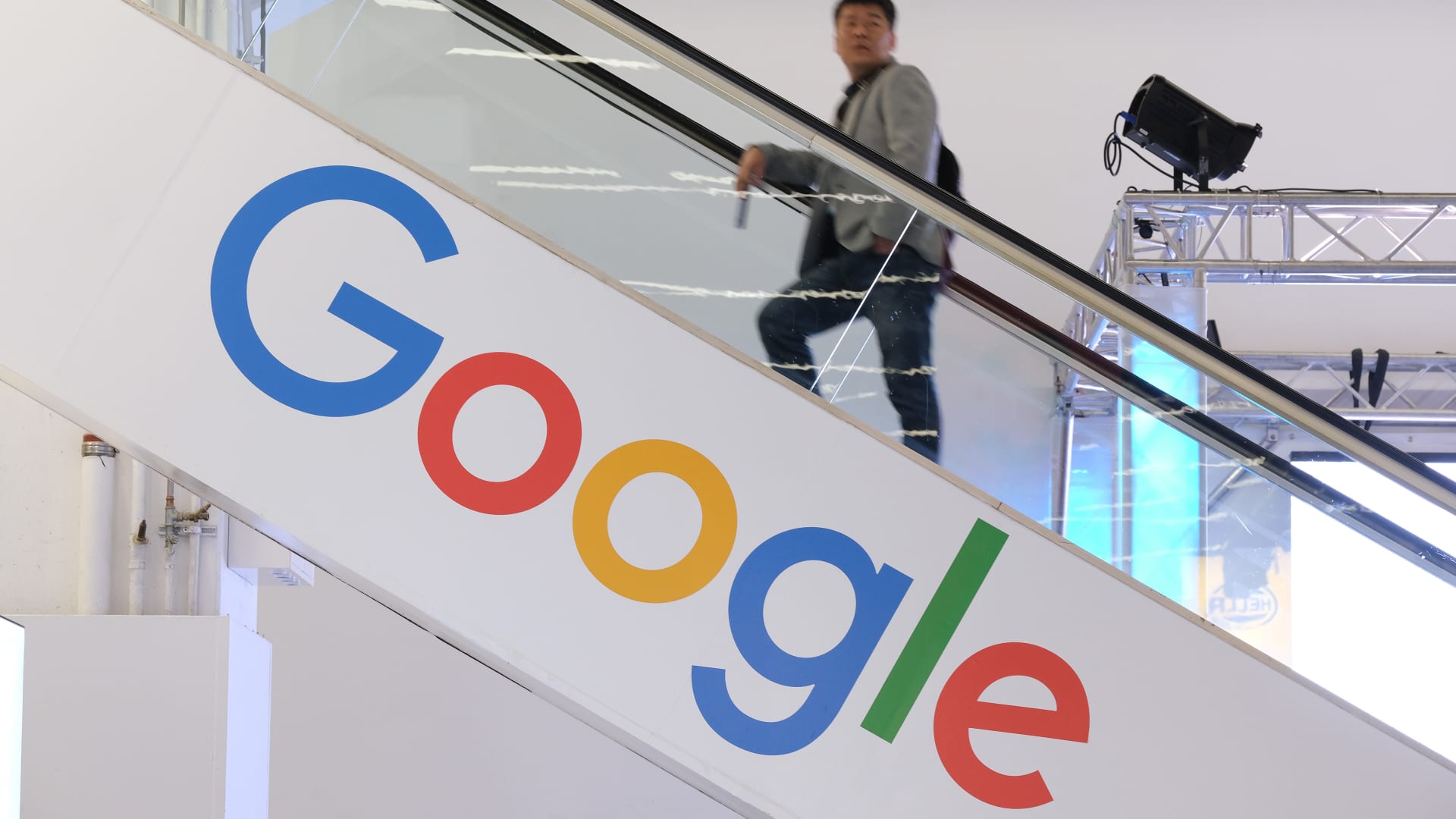
The price of Club holding Alphabet (GOOGL) shares look a whole lot different Monday. That’s because the Google parent’s 20-for-1 stock split, announced back in February, finally happened. Here’s what Club members should know about the change. More shares, but not cheaper After Friday’s close, Alphabet stockholders received an additional 19 shares for each share they owned as of the market close on July 1. If you fall into that camp — as the Investing Club does — the total number of shares you own in your brokerage account will be up Monday morning. However, it’s important to remember, the lower stock price doesn’t necessarily mean Alphabet shares have gotten any cheaper on a price-to-earnings basis. From a valuation perspective, stock splits are purely a cosmetic move; they do not, by themselves, create value. Reminder: P/E ratios are calculated by dividing a company’s stock price by its earnings per share. Because stock splits increase the overall number of shares, mathematically speaking they also reduce a company’s per-share earnings — even if the company posts the same overall earnings. To this end, Club members may notice we’ve updated our price target on Alphabet shares to $165 to reflect the stock split. Our valuation logic hasn’t changed on the stock; we simply divided our old price target by 20. Why we like splits Despite the facts outlined above, we are generally fans of stock splits. Our rationale is all about investor psychology and retail accessibility. We know it’s become commonplace for brokerage accounts to offer users the option to buy fractional shares. In theory, this makes it easier for a small investor to own a piece of a company that has a stock price with a large dollar amount — perhaps in the $2,000s per share, which is where Alphabet traded before its 20-for-1 split went into effect. On the other hand, some investors really want to own full shares of a company — it’s psychological, sure, but they find it more desirable to spend $400 to own 2 shares of hypothetical Company X now that it split its stock instead of owning 0.2 of a share when the stock traded at $2,000. For that reason, we support Alphabet’s stock split, just like we viewed Amazon ‘s (AMZN) similar 20-for-1 split last month favorably, too. Then there’s the recent GameStop (GME) stock split. That one feels more gimmicky than anything because the stock was only in the $100s per share at the time, and the meme-stock darling has hardly announced anything very substantive regarding a turnaround effort for the video-game retailer’s fundamental business. Options impact We at the Investing Club are long-only investors, and we did not trade options. However, stock splits have an impact in the options world, which is worth pointing out at a very basic level. Options contacts give an investor the right — but not the obligation — to buy or sell a particular stock at a specific predetermined price. These contracts are based on 100 shares, and investors pay a fee (known as a premium) associated with them. The higher a stock’s face value, the more expensive an options contract containing 100 shares of that same stock becomes. In the near term, a stock split reduces a stock’s face value. As a result, a lower per-share stock price could make individual options contracts less costly and, therefore, potentially more accessible to investors who trade options. This is because the notional value of the 100 shares will directly impact the premium paid, which is some percentage of the notional value. For example, 100 shares of GOOGL at $2,200 has a much higher notional value ($220,000) than 100 shares of GOOGL at $110 ($11,000) and a 5% premium is going to be a much steeper in absolute dollar value on the former ($11,000) than the latter ($550), making it far less accessible for many options traders. (Jim Cramer’s Charitable Trust is long GOOGL and AMZN. See here for a full list of the stocks.) As a subscriber to the CNBC Investing Club with Jim Cramer, you will receive a trade alert before Jim makes a trade. Jim waits 45 minutes after sending a trade alert before buying or selling a stock in his charitable trust’s portfolio. If Jim has talked about a stock on CNBC TV, he waits 72 hours after issuing the trade alert before executing the trade. THE ABOVE INVESTING CLUB INFORMATION IS SUBJECT TO OUR TERMS AND CONDITIONS AND PRIVACY POLICY , TOGETHER WITH OUR DISCLAIMER . NO FIDUCIARY OBLIGATION OR DUTY EXISTS, OR IS CREATED, BY VIRTUE OF YOUR RECEIPT OF ANY INFORMATION PROVIDED IN CONNECTION WITH THE INVESTING CLUB. NO SPECIFIC OUTCOME OR PROFIT IS GUARANTEED.




